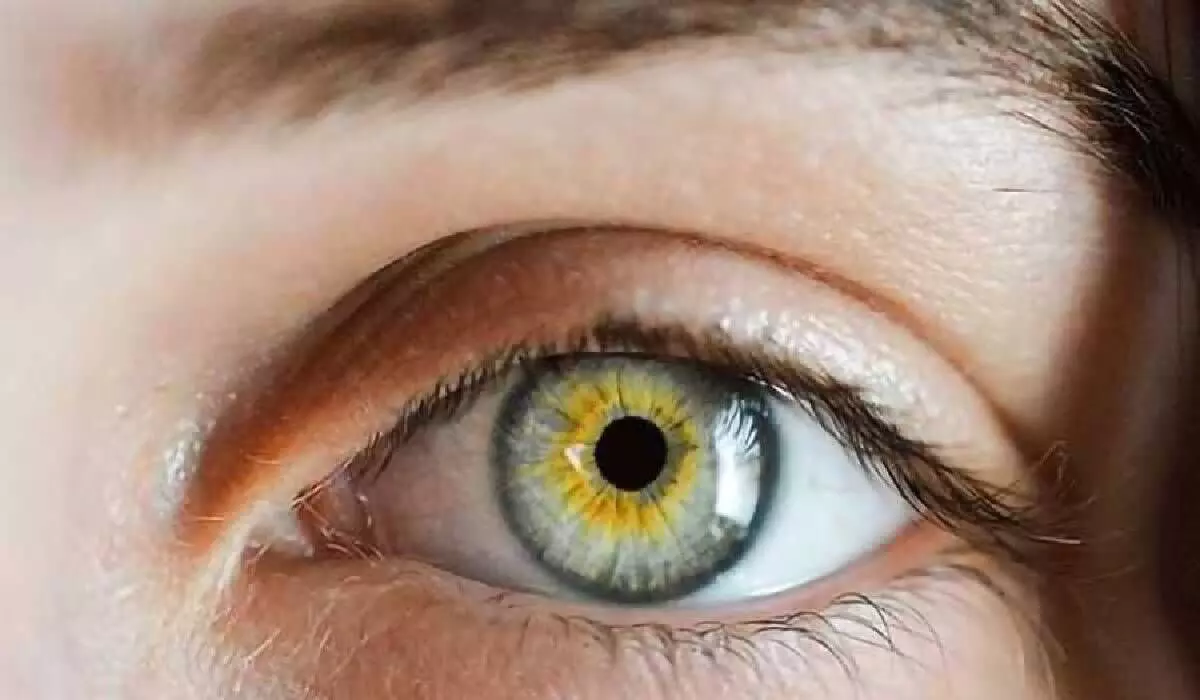Indian-made ‘liquid cornea’ to soon be tested on humans
Developed by Bengaluru-based Pandorum Technology in collaboration with Dr Shroff's Charity Eye Hospital and ‘liquid cornea’ aims to give millions the gift of sight
image for illustrative purpose

After seeing about 80 per cent success in animal trials, a team of Indian doctors are soon set to launch human trials on the made in India 'liquid cornea' for people with corneal blindness - a type of visual impairment due to diseases of the cornea.
'Liquid Cornea' is developed by Bengaluru-based Pandorum Technology in collaboration with Dr Shroff's Charity Eye Hospital and aims to give millions the gift of sight. Cornea is the transparent part of the eye that covers the iris and the pupil and allows light to enter the inside.
"We will be applying for Drugs Controller General of India (DCGI) approval in the next three to four months," Dr Virender Sangwan, Director of Innovation, Dr Shroff's Charity Eye Hospital, told IANS on Wednesday.
"We have seen around 80 per cent success rate in the animal trials. We will be able to ascertain success in humans after we begin the trials. This is a first of its kind technology in India which has been made by an Indian company, with the support of Indian hospitals and by Indian doctors and scientists for the Indian people.
"This will help reduce the waiting list for transplants, address the lack of supply of corneas needed for transplants to take place. It will also effectively eliminate corneal blindness"a said the eye expert.
According to the World Health Organisation (WHO), corneal opacity accounts for over 4 per cent of blindness worldwide, leading to more than 1.5-2 million cases each year. India has a huge burden of bilateral (1.2 million) and unilateral (5-6 million) corneal blindness. Each year, the burden increases by 30,000 new cases of blindness.
According to the Eye Bank Association of India, more than 1,00,000 corneal transplants are required annually, but only 25,000 are actually done.
Dr Sangwan explained that the liquid cornea was made in the laboratory using "biomaterials such as collagen, protein, peptide - the building materials of the body". It is a class of products powered by tissue-specific exosomes and tissue-mimetic biomaterials, to promote regeneration of healthy functional cornea.
When this is applied as liquid drops on the cornea, it solidifies in less than 10 minutes using visible light and integrates to the patient's cornea. Inside the solidified matrix, the biopolymer acts as sacrificial material supporting sustained release of exosomes which suppresses the ulceration defining condition like inflammation, reverses fibrosis, regenerates nerves and restores corneal thickness.
"A bio-printed cornea or liquid cornea will allow patients a chance to regrow damaged corneas with minimal surgical intervention. It doesn't need any stitching, we don't need any donor cornea, and the drop fills the gap like a liquid in a mould," Dr Sangwan said, in a statement.
Currently, cornea transplant is done via cadaver donors. But, "unfortunately, 40 per cent of the donated corneas do not meet the standards for the transplant".
"A bioengineered cornea's advantage is that it is not from another human being, so it won't get rejected when the transplant happens. It does not have rejection potential which donor corneas have and also bioengineered corneas are not limited in supply like donor corneas are," he said.
While noting that it's too early to talk about the affordability of the bioengineered cornea to the common man, Dr Sangwan said "our endeavour is that it should not be more expensive than a corneal transplant", which in India approximately begins at Rs 42,750.
After seeing the results on adult patients, the trial will move to paediatric patients. "Our aim is to use it to address all types of corneal scars which are caused by infections and injuries," he noted.

